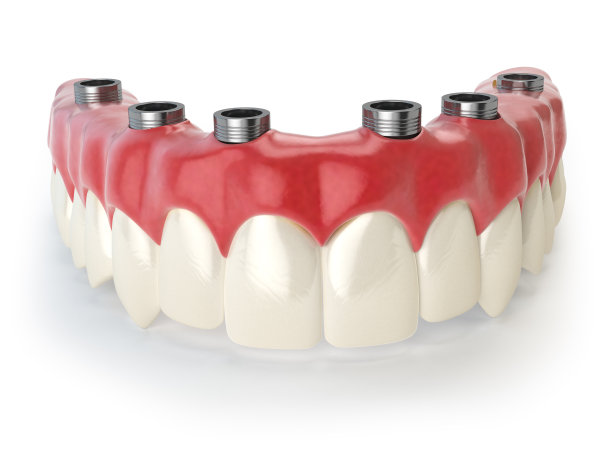Summary: Dental implantation is a sophisticated procedure that requires careful consideration of various factors to ensure optimal oral health outcomes. This article outlines essential guidelines for safe and successful dental implantation, focusing on pre-operative assessments, choosing the right implant, the surgical process, and post-operative care. Each aspect plays a crucial role in minimizing risks and enhancing recovery, ultimately contributing to the longevity and effectiveness of dental implants. By adhering to these guided principles, patients can achieve better oral health results and improve their overall quality of life.
1. Comprehensive Pre-Operative Assessments

Before undergoing a dental implant procedure, comprehensive pre-operative assessments are crucial to ensure both safety and success. This includes a detailed medical history review, wherein the dental professional identifies any pre-existing conditions that might affect healing, such as diabetes or osteoporosis. Understanding the patients medical background enables personalized planning tailored to minimize potential complications.
Another essential component of pre-operative assessments is diagnostic imaging. Technologies like X-rays or CT scans provide crucial insights into the patients jawbone structure and overall oral health. These images help dentists assess bone density and determine the most appropriate implant size and type, significantly impacting the procedures outcome.
Finally, thorough discussions with the patient regarding their expectations, concerns, and treatment options are vital. Clear communication fosters trust and allows patients to make informed decisions, which is integral to the overall success of the implant procedure.
2. Importance of Selecting the Right Implant
The selection of the appropriate dental implant is another key factor in ensuring a successful procedure. There are various types of materials, designs, and brands available, each with unique characteristics that cater to different needs. Quality implants made from biocompatible materials minimize the risk of rejection and promote effective osseointegration—the process through which the bone integrates with the implant.
Moreover, examining the implant design is critical. Some implants are screw-shaped, while others have a cylinder shape, influencing their stability and integration. The choice should also consider the location in the mouth; posterior implants may require different considerations compared to anterior implants due to their functional and aesthetic demands.
Collaboration with an experienced oral surgeon can aid in selecting the ideal implant type. Dentists must remain updated on emerging technologies and innovations to provide the best options available to their patients, ensuring optimal outcomes for dental implantation procedures.
3. Understanding the Surgical Process
The surgical procedure itself is a pivotal moment that requires meticulous attention to detail. Anesthesia choices should be made based on individual needs, whether local anesthesia or sedation, to ensure patient comfort during the entire process. Proper sedation management contributes to a stress-free experience for the patient, which can facilitate smoother implantation.
During the actual surgery, the surgeon must follow established protocols to ensure precision and safety. This includes carefully drilling into the jawbone to create a place for the implant without causing excessive trauma to surrounding tissues. Attention to anatomical landmarks and thorough knowledge of the jaw structure are essential for preventing complications during this phase.
Post-surgical monitoring is equally important. Ensuring the patient is stable before discharge, and providing detailed aftercare instructions can minimize risks of infections or implant failure. A smooth surgical process paired with strict adherence to safety protocols elevates the chances of successful dental implantation significantly.
4. Essential Post-Operative Care Strategies
The post-operative phase is critical in determining long-term success. Following the dental implant procedure, proper care is essential to foster healing and osseointegration. Patients should follow prescribed medications, such as antibiotics or pain relievers, diligently to prevent infections and manage discomfort effectively.
Additionally, regular follow-up appointments with the dental professional are crucial. These visits allow professionals to monitor the healing process, check the implants stability, and address any concerns the patient may have. Such proactive management aids in early detection of potential problems that could impact long-term outcomes.
Lastly, promoting good oral hygiene practices post-surgery is vital. Patients should be educated on gentle cleaning techniques to avoid disturbing the surgical site while ensuring overall oral hygiene. This balance helps maintain an environment conducive to healing while safeguarding long-term implant success.
Summary:
The article emphasizes the significance of carefully considering various aspects of dental implantation, including pre-operative assessments, selecting the right implant, understanding the surgical process, and implementing effective post-operative care strategies. Each of these factors plays a vital role in enhancing the success of dental implants and ensuring optimal oral health.
This article is compiled by Vickong Dental and the content is for reference only.
Vickong Dental
Vickong Dental is a large medical group established in Hong Kong in 2008 by professors from well-known medical universities in Guangdong and Hong Kong, as well as medical doctors from key national '985' universities (including Master's supervisors and senior professors). The chain of branches brings together expert dentists with PhDs and Master's degrees from Hong Kong and Mainland China, committed to providing high-quality dental treatment.
"Vickong Dental Practices the University Motto of 'Healing and Serving Society,' with a Stable Operation for Sixteen Years. It Has Been honored with Hong Kong Enterprise Leaders's Choice,' and is a Global Trusted Implant Center for the Nobel Implant System. Recommended by Hong Kong Metro Broadcast and Guangdong Television, it Serves Customers from Over Thirty Countries and Regions, Gaining the Trust and Favor of Citizens from the Guangdong-Hong Kong-Macau Greater Bay Area and Surrounding Cities.

Thousands of customers' unanimous praise
The most recognized and highly recommended dental service by customers in the Guangdong-Hong Kong-Macau Greater Bay Area
We Ensure You Receive Detailed Care and Attention Here
Hong Kong standards, Shenzhen prices, Your Trusted English-speaking dentists

Vickong Dental Medical-Grade Instrument Disinfection Process
Vickong Dental Medical-Grade Instrument Disinfection Process

Vickong Dental Chain: A Warm and Comfortable Environment for Treatment






Appointment Hours

Q&A
Why choose Vickong Dental?
Vickong Dental practices the university motto 「Medicine to Benefit Society」, with each branch bringing together highly qualified dentists with doctoral and master’s degrees from Hong Kong and the Mainland, and has maintained seventeen years of steady operation。Recipient of 「2024 Hong Kong Enterprise Leaders Brand」, 「2025 Hong Kong Enterprise Leaders Brand」, a Nobel Biocare Global Trusted Implant Center, and a brand recommended by Metro Radio Hong Kong and Guangdong TV。
To date, we have served customers from more than thirty countries and regions,earning exceptionally high word-of-mouth recognition and trusted recommendations from residents across the Guangdong-Hong Kong-Macao Greater Bay Area and surrounding cities
We have eight major branches in Zhuhai、Shenzhen,and a consultation and service assurance center in Hong Kong,so you can book a free consultation at any time for any questions,which is very reassuring.
If I do not accept the quotation after the CT scan, will I be charged??
No! As long as the actual treatment has not started, you will not be charged any fees.
Will there be any additional charges during the treatment process?
No, there won’t be any additional charges. Before treatment begins, we will clearly explain the treatment plan and its corresponding fees. Only after the patient agrees and signs the consent form will we proceed with the dental service.
Can I pay in Hong Kong dollars?
Yes. Vickong Dental accepts payment in Hong Kong dollars. The amount will be converted based on the exchange rate of the day, and the applicable rate will be clearly communicated to you in advance.
Can I reschedule my appointment at any time?
Yes. Please contact us via **WeChat** or **WhatsApp** as early as possible, providing your original appointment time and details, along with your preferred new date and time slot for rescheduling.













